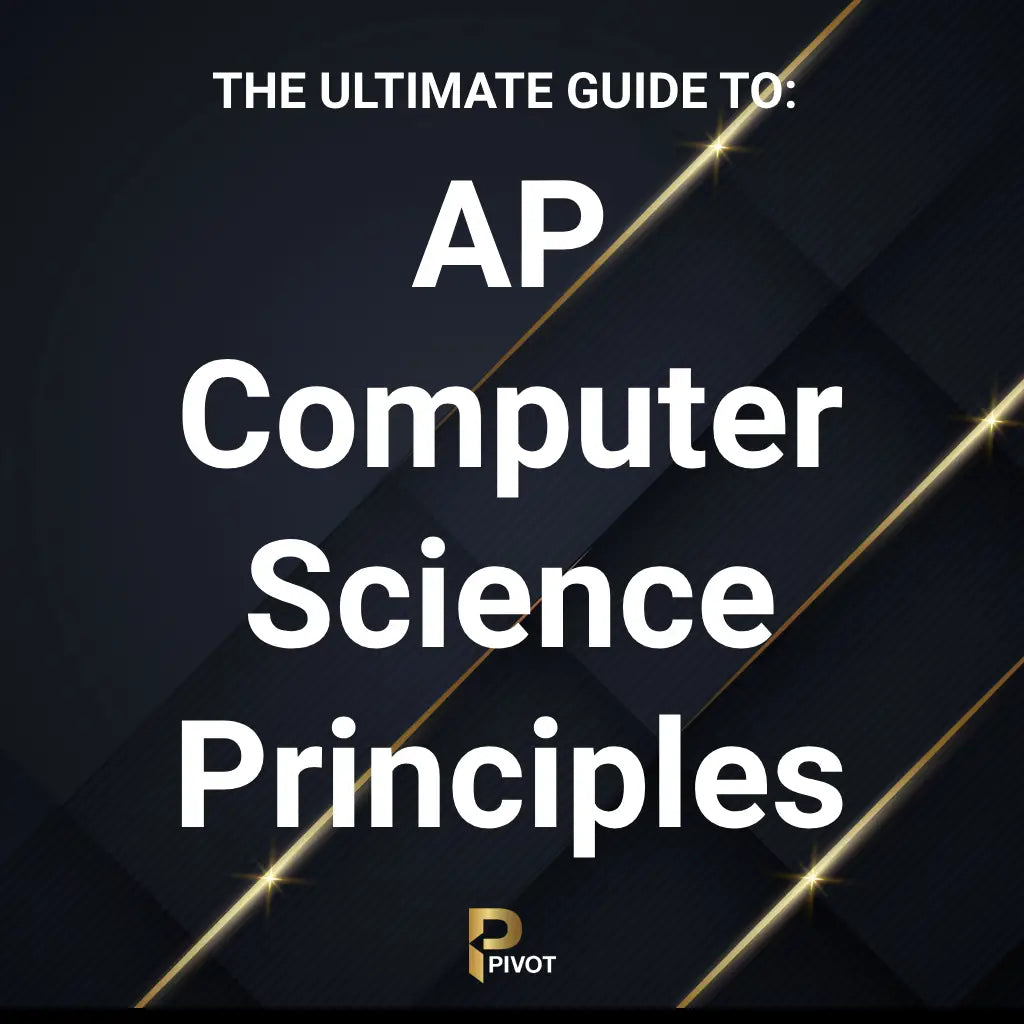
AP Computer Science Principles Tutoring
Improve AP Computer Science Principles grades with help from expert tutors.
Common Challenges With AP Computer Science Principles
-
Abstract Concepts
Computer Science Principles often deals with abstract concepts that some students find difficult to grasp. To address this, we break down these complex ideas into smaller, more manageable pieces, using real-world examples and visual aids to enhance understanding.
-
Coding and Algorithm Development
Students often struggle with creating and understanding algorithms, especially if they are new to programming. We introduce students to the logic of algorithm design through step-by-step walkthroughs and help them gain hands-on experience through guided coding exercises.
-
Internet Functions
The vastness and complexity of the internet and cybersecurity can be intimidating to many students. We demystify these topics by providing clear explanations and using analogies and models to help students understand how the internet works and the importance of cybersecurity.
-
Data Analysis
Analyzing and interpreting data can be challenging, especially when the data sets are large or complex. We teach students how to use various data analysis tools and techniques, and guide them through the process of making sense of real-world data sets.
-
Project Development
The Create Performance Task in the AP Computer Science Principles exam requires students to develop their own program. Some students may struggle to come up with an idea or implement it. We provide brainstorming sessions to help students develop unique and practical project ideas.
-
Exam Preparation
The AP Computer Science Principles exam has a unique format that combines multiple-choice questions with two performance tasks. We provide students with practice tests and personalized feedback to help them become comfortable with the exam format and improve their test-taking strategies.
Ways We Tutor AP Computer Science Principles
-
Integrating Real-World Examples
As much as possible, we integrate real-world examples to illustrate key computer science concepts. This could include exploring the structure and design of a popular app or website, or discussing how specific algorithms have transformed industries.
-
Hands-On Programming
We engage students in active learning through hands-on coding exercises. This includes writing code in a variety of languages like Python or JavaScript, debugging faulty programs, and using integrated development environments (IDEs).
-
Exploring Ethics and Impact
Given the impact of technology on society, discussions on the ethics and societal implications of computing can be insightful. By discussing case studies and current events, we can help students gain a deeper understanding of these important aspects of the subject.
-
Visual Aids and Simulations
To help students grasp abstract concepts, we make extensive use of visual aids and simulations. This could involve flowcharts for understanding algorithms or network simulations for exploring how the internet works.
-
Data Structures Practice
We delve into common data structures (arrays, lists, etc.) with targeted exercises, allowing students to recognize when and how to use these structures in different programming scenarios.
-
Guided Exam Practice
We familiarize students with the exam format through regular practice with past papers and AP-style questions. We provide guidance and feedback to help students understand where they're going wrong and how to improve.
Our AP Computer Science Principles Tutor Qualifications
-

Advanced Computer Science Degrees
Our Computer Science tutors are highly skilled and knowledgeable in the subject, backed by strong academic credentials. With degrees in Computer Science or related disciplines, they bring a deep understanding of mathematical concepts to the table.
-

Experience Teaching Computer Science
Our tutors are skilled educators who have honed their teaching methods through experience and training. They employ a variety of effective instructional strategies, adapting their approach to suit individual learning styles.
-

Friendly Personality
Our tutors embody warmth and approachability. They foster an engaging learning environment, facilitating open communication and making students feel comfortable asking questions or expressing concerns.
Example AP Computer Science Principles Tutoring Packages
We offer diverse and flexible options, catering to your child's unique needs and your family's schedule. Choose from ad-hoc sessions for immediate needs, to long-term plans for ongoing support.
Our most common tutoring plans:
-
Semester Support
This package offers regular tutoring sessions for an entire academic semester, ensuring consistent support for the student. The frequency could be 1-3 times per week depending on the need.
-
Monthly Intensive
This offers more frequent sessions over a one-month period. This could be suitable for a student who needs to catch up quickly or prepare for an important exam.
-
Ad-hoc Sessions
For students who require tutoring on a more sporadic or as-needed basis.

Pivot Tutors
The Ultimate Guide to AP Computer Science Principles by Pivot Tutors
Share


Want help with AP Computer Science Principles?
Get in touch and let's plan for academic success together.



